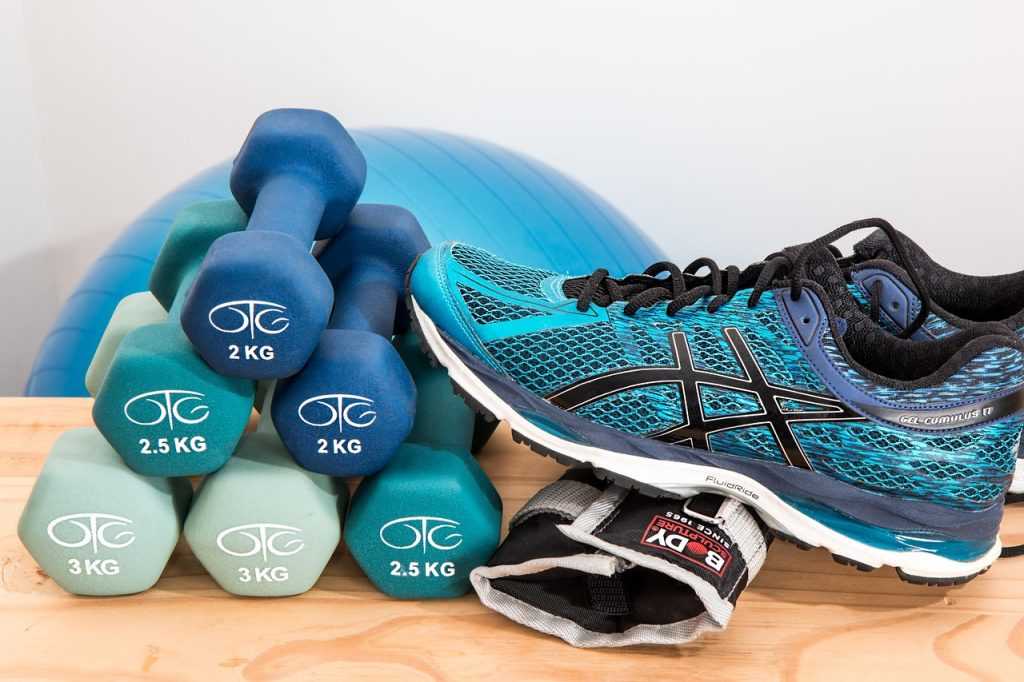After a rigorous workout session, proper post-workout recovery is essential for maximizing gains and preventing injuries. In my experience as a fitness enthusiast, I’ve learned that how you recover is just as important as how you train.
In this article, I’ll share some of the best practices to help you bounce back stronger after your workouts. From nutrition to rest and everything in between, post-workout recovery encompasses a range of strategies that can make a significant difference in your fitness journey.
I’ve tried and tested various recovery methods over the years and have honed in on the most effective ones. By incorporating these best practices into your routine, you can optimize your recovery process and set yourself up for success in reaching your fitness goals.
Whether you’re a seasoned athlete or just starting your fitness journey, understanding the importance of post-workout recovery is key to long-term progress. Join me as I delve into the top strategies that can elevate your recovery game and help you perform at your best.
Importance of Post-Workout Recovery
Recognizing the importance of post-workout recovery is key to achieving fitness goals effectively. Recovery plays a vital role in enhancing performance, reducing the risk of injuries, and maximizing the benefits of exercise.
As an avid fitness enthusiast, I have learned through experience that giving adequate attention to recovery is just as important as pushing hard during workouts. Implementing proper recovery techniques can have a profound impact on overall progress and long-term success.
Whether you’re a beginner or a seasoned athlete, prioritizing recovery in your fitness regimen can make a significant difference in how your body responds to training stimuli. By incorporating strategies such as proper nutrition, hydration, rest, and active recovery activities, you can accelerate muscle repair, replenish energy stores, and prepare your body for future training sessions.
Understanding that recovery is a holistic process that involves both physical and mental aspects is crucial. It’s not just about resting your body but also about engaging in activities that promote relaxation and reduce stress levels.
From getting adequate sleep to practicing mindfulness techniques, every aspect of recovery contributes to your overall well-being and fitness progress. Post-workout recovery should not be overlooked or underestimated in any fitness routine.
By valuing and dedicating time to recovery, you can optimize your performance, prevent burnout, and sustain long-term progress in your fitness journey. Prioritizing recovery is not a sign of weakness but a strategy employed by smart athletes to ensure they perform at their best consistently.
Hydration and Nutrition Strategies
Importance of Hydration
Staying hydrated is crucial for optimal post-workout recovery. Dehydration can hinder muscle repair and increase the risk of cramps and fatigue. It’s essential to replenish lost fluids by drinking water consistently throughout the day.
I aim to consume at least 8-10 glasses of water daily to support my body’s recovery process after intense workouts.
Essential Nutrients for Recovery
Nutrition plays a vital role in effective recovery after exercise. Consuming a balanced post-workout meal rich in protein, carbohydrates, and healthy fats is key. I prioritize foods like lean proteins (e.g., chicken, tofu), complex carbohydrates (e.g., quinoa, sweet potatoes), and omega-3 fatty acids (e.g., salmon, chia seeds) to aid in muscle recovery and replenish energy stores.
Including a variety of colorful fruits and vegetables in my diet ensures I get essential vitamins, minerals, and antioxidants for overall recovery and performance.
Rest and Sleep
Rest and sleep play a crucial role in post-workout recovery, aiding in muscle repair and growth. Achieving adequate rest after exercise is essential for the body to recover and adapt to the physical stress imposed during the workout.
Impact of Rest on Recovery
Quality rest is fundamental for optimal recovery post-workout. It allows the muscles to repair and grow, enhancing overall performance. Adequate sleep promotes the release of growth hormone, which is essential for muscle recovery and repair.
Aim for 7-9 hours of quality sleep per night to support your body’s recovery process effectively.
Muscle Recovery Techniques
Incorporating effective muscle recovery techniques is crucial to support optimal fitness gains and minimize the risk of injuries. As a fitness enthusiast, I’ve learned through experience that post-workout recovery plays a vital role in overall performance improvement.
By applying specific strategies tailored to muscle recovery, individuals can enhance their well-being and accelerate progress in their fitness journey. Here are some key techniques that can aid in maximizing muscle recovery:
- Foam Rolling: Utilizing a foam roller after workouts can aid in releasing muscle tension, improving blood circulation, and reducing muscle soreness. It’s a valuable self-myofascial release technique that can enhance recovery between training sessions.
- Stretching: Incorporating dynamic and static stretching exercises post-workout can help improve flexibility, enhance range of motion, and reduce the risk of injury. Stretching can also promote blood flow to the muscles, facilitating the recovery process.
- Cold Therapy: Applying cold therapy, such as ice packs or cold baths, to targeted muscles after intense workouts can help reduce inflammation, alleviate muscle soreness, and accelerate recovery. Cold therapy constricts blood vessels, which may aid in minimizing muscle damage.
- Compression Gear: Wearing compression garments post-exercise can assist in improving blood circulation, reducing muscle fatigue, and providing support to the muscles. Compression gear may aid in enhancing recovery and minimizing swelling or muscle stiffness.
- Active Recovery: Engaging in light physical activities like walking, cycling, or yoga on rest days can promote blood flow, loosen tight muscles, and aid in recovery without inducing additional stress on the body. Active recovery sessions can help maintain mobility and improve overall well-being.
By integrating these muscle recovery techniques into your post-workout routine, you can optimize your body’s recovery process, support muscle repair and growth, and sustain consistent progress in your fitness endeavors. Prioritizing recovery as an integral part of your fitness regimen is key to achieving long-term success and maintaining peak performance levels.



 Wellness Coach
Jake Beet is a certified wellness coach at Aura Nature Spark, specializing in personalized nutrition and fitness plans. With a background in exercise science, Jake is dedicated to helping individuals achieve their health goals through tailored programs that emphasize balance and sustainability. His engaging and supportive approach empowers clients to make positive lifestyle changes that last. Jake believes that wellness is a journey, and he is passionate about guiding others toward a happier and healthier future.
Wellness Coach
Jake Beet is a certified wellness coach at Aura Nature Spark, specializing in personalized nutrition and fitness plans. With a background in exercise science, Jake is dedicated to helping individuals achieve their health goals through tailored programs that emphasize balance and sustainability. His engaging and supportive approach empowers clients to make positive lifestyle changes that last. Jake believes that wellness is a journey, and he is passionate about guiding others toward a happier and healthier future.
